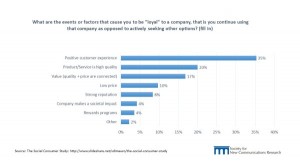The fallout from COVID-19 continues to show us that a global crisis doesn’t affect everyone in the same way. That the workforce faced systematic and wide-ranging experiences this past year is a clarifying reminder of how corporate social responsibility professionals must account for their support schemes in a climate of ever-evolving needs.
CSR leadership had to enact broad organizational change as we went about setting capabilities in a newly remote world. To maintain employee health and productivity, employees needed trusting relationships and social cohesion. It became a delicate balancing act for everyone.
As we advance, CSR organizations will need to build on the trust they spent 2020 cultivating. Businesses should act to practice transparent communication, use dynamic thinking in all aspects of decision-making, and preserve flexibility within their operation and networks as the world navigates the latter stages of this crisis. These actions can help prepare organizations for — and safeguard them against — the different and potentially critical standpoints they may face.
Adapting CSR to Meet the Moment
How a company’s CSR pivots to tackle a current crisis can say a lot about its problem-solving prowess. In 1982, Johnson & Johnson recalled 31 million Tylenol bottles after several deaths were linked to the pain reliever.
Why does this matter? It shows that transparency and accountability are true hallmarks of social impact strategy — situational awareness is a must — and that both elements should be part of any crisis planning.
How Johnson & Johnson acted remains a model for active corporate responsibility. Similarly, how organizations respond to the pandemic will define their brand for decades to come. For businesses, this means the public should be able to see your values in action. As it relates to sustainability efforts, now might be a better time to pause any major efforts and instead focus on research and big-picture planning.
Everyone in sustainability must also acknowledge the time we live in, how we communicate — and the limitations we face. COVID-19 became a worldwide phenomenon that people won’t soon forget. Although many companies speak to the importance of having an ingrained social purpose, now is the perfect time to put those proclamations into practice.
Building on Pivoting
Being able to adjust at a moment’s notice should remain a core function of strategy as companies balance bottom-line performance with social impact. Openness for change is crucial, but companies must also understand the risks and rewards ahead of time to better prepare to act once conditions are favorable. Consider these points as your organization seeks to balance its needs going forward.
1. Don’t put CSR back in the drawer.
We will emerge from this pandemic, and global companies will most certainly be reorganizing operations and supply chains to mitigate risk. Managing supply and cost chains should certainly define early agendas, but recalibrating for a more standard process doesn’t mean ignoring the initiatives that got us through: In a climate of increased public visibility, leaders need to be especially sensitive to any blowback that could result from premature action.
The post-COVID phase should be seen as a time for leaders to build resilience at the operational level. At the same time, it will be crucial to find spaces where social value and CSR might continue a relationship with essential business operations.
2. Use potential gaps to your advantage.
There’s some truth to the adage “accentuate the positive.” Any business that highlights its strengths does so because it puts the value and advantages it provides top of mind with the public. But focusing on gaps also has merit.
A McKinsey study of 12 countries identified the gaps, vulnerabilities, and opportunities that arose amid the pandemic in each region. Gaps and opportunities are important because they can work in conjunction to show a company where its CSR efforts need bolstering and where there’s a chance to provide more value to its target audiences.
Regularly assess your CSR gaps and put a plan of action in place to address them. Is your digital presence subpar? Are you having trouble developing buy-in? Have the needs of your target audience changed?
Whatever the deficiency, steer into to them. It’s a move that can establish your company as one committed to confronting its CSR negatives and turning them into positives.
3. Communicate with your front line early and often.
When it comes to supporting grantees during times of uncertainty, one social consulting firm sought to locate the exact needs of the communities that those grants support. In this instance, it meant engaging local leaders who knew what their communities required but didn’t necessarily have the leverage to meet those needs.
The same would apply to green-conscious companies that partner with NGOs who help guide targets. Many NGOs are struggling with the one-two punch of falling donations and reduced volunteerism. Under these circumstances, it might not be possible to deliver joint projects at scales and timelines previously set. Flexibility has a place here: CSR teams should talk with their NGO partners, having honest and ongoing conversations about what needs may be there.
Wide-scale adjustments can be found at the worker level, too, where complexities between home- and work-life and equitable access to remote-essential resources (like computers) have paved the way toward new policies and benefits for employees. It is hard to imagine any of this could have come in a meaningful way without leadership connecting at the ground level.
Thread Well-Being Through CSR and Connectivity
Initiatives that help staff reduce their carbon footprint and on-site energy consumption are mainstays in CSR strategy. Simultaneously, we know the importance of maintaining healthy routines. Hubbub co-founder Trewin Restorick suggests that encouraging employees to adopt those efforts at home is a clear and useful way to promote these efforts while maintaining a healthy connection to workers.
While the pandemic goes on challenging our personal and professional lives, we will do well to keep in mind the invaluable lessons it has provided to us. Communication, transparency, and accountability have been essential to conducting business during a pandemic — and the same is true of flexibility and situational awareness.
Finding ways out from the wake COVID-19 has left will help businesses and CSR communities retain both a newfound resilience and, critically, a better orientation around the values they’re built on.
Business & Finance Articles on Business 2 Community
(45)
Report Post





